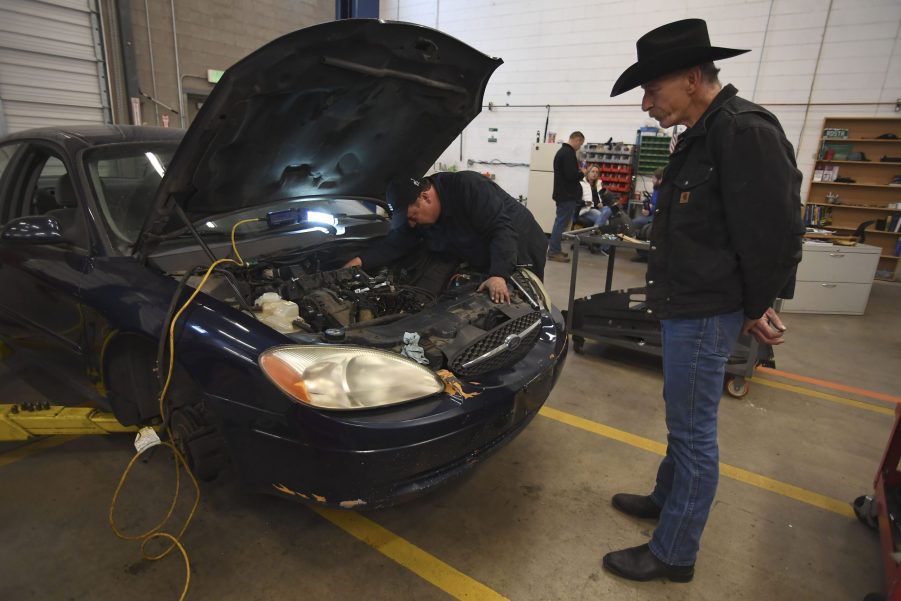
Deciding Whether to Repair Your Old Car or Replace It Isn’t Easy
Is your car getting crankier and more temperamental by the day? If it is, you’re probably weighing your choices and trying to decide which is the better option: repair your old car or replace it?
Unfortunately, there’s no one size fits all solution to the “repair or replace” question. Your best option will depend upon several factors that are unique to you and your circumstances. However, financial guru Dave Ramsey has some advice that may help you determine the best path. We’ll recap that advice, plus some other considerations, below.
Is it better to repair or replace a car?
Use a site like Edmunds or Kelley Blue Book to estimate the value of your car as it is (without repairs). Then consult with several mechanics about the cost of needed repairs and how much they could add to your car’s value. Also, ask about spreading the repairs out. There may be some that need immediate attention and others that can wait for a while. Delaying less pressing repairs will give you time to save for the next repair bill.
If your car’s repaired value is worth as much or more than the cost of the repair, it’s probably worth repairing over replacing. If not, or if there are other repairs in the near future, you may want to sell before things get worse. Then you can invest the money from the sale of your car, along with the repair money you didn’t spend, on a more reliable vehicle.
Doing the math can only point you in an initial direction in terms of the repair or replace question. You’ll have to factor in other things like how disruptive breakdowns are to your life and how much you still owe on your current ride. Only you can find the right solution to your particular problem.
When you should replace a car
If your $5,000 car needs a $2,000 repair, it’s probably not worth fixing. That’s because it’s still a well-used car with other potential repair costs just over the next horizon. Not only that but you’ll need to pay for routine maintenance, too.
Do you really want to pay for oil changes, tune-ups, new tires, and more for your old car? If you don’t keep up with routine maintenance, you put yourself at risk of more repairs at an even quicker pace. Neglecting routine maintenance will turn an aging car into an old clunker in no time!
Is it worth fixing your own car?
With all the car repair videos available online, it’s easy to perform many simple repairs yourself. Changing headlights, replacing fuses, or even repairing faulty door locks are all fixes you can tackle yourself. Put the money you save into a car repair fund to pay for car repairs you shouldn’t tackle yourself. Tackling transmission troubles or fixing faulty fuel lines is not the place to start for those with limited mechanical skills!
Start saving now for future vehicle expenses

Those vehicle expenses include routine maintenance, repairs, and the eventual replacement of even a well-cared car. Creating a budget that includes a line item for car maintenance and repairs ensures you’ll have the money available when you need it.
When it’s time to replace your ride, look around for a newer used vehicle in great shape. You’ll save a lot of money over buying a new vehicle. That’s because someone else has already paid for the bulk of the new vehicle depreciation! If you decide to buy a used vehicle, always have it inspected by a reliable mechanic.
If you don’t have enough money to buy your target vehicle right away, don’t worry. Ramsey recommends buying the best cheap car you can find for the amount of cash you have available. Then put the amount of money you would have spent on a car payment into savings every month.
After a few months, sell that first vehicle and put the sales price (plus the amount you’ve saved) toward a better vehicle. Keep repeating this purchasing, saving, and selling cycle until you have a vehicle you like enough to keep. You’ll end up with a reliable vehicle you love without paying a dime in interest. Now that’s the way to buy a used car!


